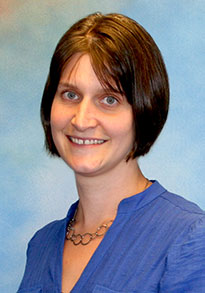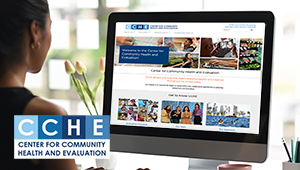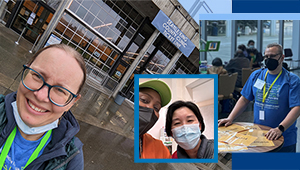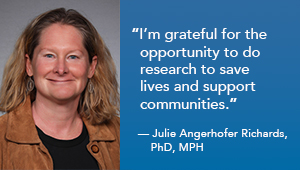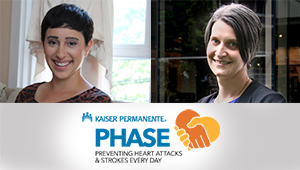Healthy Communities
Research overview
Health is about more than health care. Where people live can have a profound influence on daily choices that can promote population health — or harm it. Kaiser Permanente Washington Health Research Institute (KPWHRI) scientists work to improve and sustain community conditions that support health and equity.
At KPWHRI’s Center for Community Health and Evaluation (CCHE) we are working with foundations, nonprofit organizations, and government agencies to evaluate their community health improvement initiatives. A few examples:
- Former CCHE director Allen Cheadle led a 10-year evaluation of Kaiser Permanente’s efforts to prevent obesity, including projects in more than 60 communities that promoted healthy eating and active living, largely through policy and environmental changes.
- CCHE principal investigators Emily Bourcier and Lisa Schafer are leading an evaluation of the Strong, Prosperous, and Resilient Communities Challenge (SPARCC) — an ambitious, multifunder initiative to improve the way changes in the built environment advance racial equity, health, and climate resilience in 6 U.S. regions.
- CCHE leads the evaluation of several initiatives to strengthen health care safety net organizations in California, including programs addressing trauma-informed care, chronic disease management, and population health management.
CCHE serves as the evaluation partner for Kaiser Permanente Washington’s (KPWA) Community Health and Benefit program, providing evaluation and strategic support for a wide range of regional initiatives, including built environment improvements in the community, school-based health centers, and healthy eating/active living programming for teachers. Beyond CCHE, other KPWHRI researchers are exploring opportunities to improve population health by creating healthier communities. Among these efforts are:
- Associate investigator Dori Rosenberg, PhD, MPH, is investigating how the built environment can better encourage walking and other movement, especially for older adults and those who have limited mobility.
- Associate investigator Clarissa Hsu, PhD, led LINCC, a project that tested a new community resource specialist (CRS) role in primary care clinics at KPWA. CRSs are now part of primary care teams at all KPWA clinics. They help patients set health goals and connect them with health-promoting resources in their own neighborhoods, including YMCAs, community centers, and farmers markets.
- Senior investigator David Arterburn, MD, MPH, and colleagues from the University of Washington and from KPWHRI including Paula Lozano, MD, MPH, Andrea Cook, PhD, Jennifer Bobb, PhD, and Dr. Rosenberg are studying characteristics of neighborhoods that are most effective in encouraging healthy habits, such as walking, biking, and eating healthy. They are studying how neighborhoods may influence long-term health outcomes.
- KPWHRI researchers have also examined the link between diabetes prevalence and neighborhood characteristics such as home value and education levels. They have also studied how other social and environmental factors affect health.
Answering questions about what makes a healthy environment gives policymakers, urban planners, and others the information they need to create healthier communities in the future.
Recent Publications on Healthy Communities
Prince SA, Lang JJ, de Groh M, Badland H, Barnett A, Littlejohns LB, Brandon NC, Butler GP, Casu G, Cerin E, Colley RC, de Lannoy L, Demchenko I, Ellingwood HN, Evenson KR, Faulkner G, Fridman L, Friedenreich CM, Fuller DL, Fuselli P, Giangregorio LM, Gupta N, Hino AA, Hume C, Isernhagen B, Jalaludin B, Lakerveld J, Larouche R, Lemon SC, Loucaides CA, Maddock JE, McCormack GR, Mehta A, Milton K, Mota J, Ngo VD, Owen N, Oyeyemi AL, Palmeira AL, Rainham DG, Rhodes RE, Ridgers ND, Roosendaal I, Rosenberg DE, Schipperijn J, Slater SJ, Storey KE, Tremblay MS, Tully MA, Vanderloo LM, Veitch J, Vietinghoff C, Whiting S, Winters M, Yang L, Geneau R Prioritizing a research agenda on built environments and physical activity: a twin panel Delphi consensus process with researchers and knowledge users 2023 Dec 7;20(1):144. doi: 10.1186/s12966-023-01533-y. Epub 2023-12-07. PubMed
Guo M, Brar Prayaga R, Levitz CE, Kuo ES, Ruiz E, Torres-Ozadali E, Escaron A Tailoring a Text Messaging and Fotonovela Program to Increase Patient Engagement in Colorectal Cancer Screening in a Large Urban Community Clinic Population: Quality Improvement Project 2023 Aug 10;9:e43024. doi: 10.2196/43024. Epub 2023-08-10. PubMed
Miller-Rosales C, McCloskey J, Uratsu CS, Ralston JD, Bayliss EA, Grant RW Associations Between Different Self-reported Social Risks and Neighborhood-level Resources in Medicaid Patients 2022 Aug;60(8):563-569. doi: 10.1097/MLR.0000000000001735. Epub 2022-05-30. PubMed
Greenwood-Hickman MA, Walker R, Bellettiere J, LaCroix AZ, Kim B, Wing D, Richmire K, Crane PK, Larson EB, Rosenberg DE Associations Between Perceived Neighborhood Walkability and Device-Based Physical Activity and Sedentary Behavior Patterns in Older Adults 2022 Feb;30(1):98-106. doi: 10.1123/japa.2020-0387. Epub 2021-08-13. PubMed
Gupta S, Rose CM, Buszkiewicz J, Ko LK, Mou J, Cook A, Aggarwal A, Drewnowski A Characterizing Percent Energy from Ultra-Processed Foods by Participant Demographics, Diet Quality, and Diet Cost Findings from the Seattle Obesity Study SOS III 2021 Sep 14;126(5):773-781. doi: 10.1017/S0007114520004705. Epub 2020-11-23. PubMed
our cche team
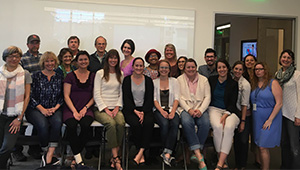
Researchers in Healthy Communities
 Kimberly Arthur, MPHCollaborative Scientist |
 Meagan C. Brown, PhD, MPHAssistant Investigator |
 Allen Cheadle, PhDSenior Investigator, KPWHRI; Senior Research Associate, CCHE |
 Maricela Cruz, PhDAssociate Biostatistics Investigator |
 Nicole M. Gatto, PhD, MPHPrincipal Collaborative Scientist |
 Clarissa Hsu, PhDAssociate Investigator |
 Dori E. Rosenberg, PhD, MPHSenior Investigator |
Affiliate researchers in healthy communities
David Grembowski, PhD
Professor, Health Services and Oral Health Sciences
University of Washington

